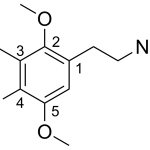The antidote to Deadly Benzodiazepines
Recent studies have highlighted a surprising discovery regarding the antidote to deadly benzodiazepines. A group of researchers has discovered that flumazenil, an FDA-approved drug, can help reverse the adverse effects of benzodiazepines in patients who have overdosed or developed tolerance to them. This breakthrough offers hope to those who struggle with benzodiazepine addiction and dependence.
Benzodiazepines are a class of psychoactive drugs used primarily for their calming effect on the central nervous system. However, they can be highly addictive and cause severe side effects such as respiratory failure, coma, and death when misused or taken in large doses. The discovery of flumazenil’s potential to counteract these adverse effects is a significant step forward in addressing this serious public health issue. Further research is needed to explore its full range of applications, but this development holds immense promise for improving patient outcomes and reducing harm from benzodiazepine use.
Overview: What are Benzodiazepines?
Benzodiazepines are a class of psychoactive drugs that can be used to treat anxiety disorders, insomnia, and other conditions. They work by enhancing the effects of a neurotransmitter called gamma-aminobutyric acid (GABA), which helps to calm down the nervous system. Some commonly prescribed benzodiazepines include Xanax, Valium, and Ativan.
However, these drugs come with a range of potential side effects such as dizziness, drowsiness, confusion, or memory problems. Long-term use can also cause dependence and tolerance. Moreover, benzodiazepines can be dangerous when combined with alcohol or opioids since they can slow down the breathing rate and lead to fatal overdoses.
Recently though, there has been some hope for people struggling with benzodiazepine addiction as researchers have discovered an antidote that could potentially save lives in overdose situations. The antidote is called flumazenil and works by blocking GABA receptors in the brain that are activated by benzodiazepines; this means it reverses their sedative effects quickly without causing any significant harm to patients who have taken too much of these drugs accidentally or intentionally.
Research: Discovery of Antidote
The discovery of an antidote to deadly benzodiazepines came as a surprise to many researchers. It was found that the drug flumazenil, commonly used in emergency situations to treat benzodiazepine overdose, could also reverse the effects of these drugs on the brain. Benzodiazepines are prescribed for anxiety and sleep disorders but can be extremely dangerous when taken in large doses or mixed with other drugs or alcohol.
The discovery of this antidote has given hope to those struggling with addiction and dependency on benzodiazepines. It is now possible for medical professionals to administer flumazenil before it’s too late, potentially saving lives and preventing long-term damage caused by overdose. However, further research needs to be done to determine the full extent and limitations of this antidote.
Overall, this discovery brings new insights into how our brains respond to certain drugs and highlights the importance of continued research in finding solutions for addiction and overdose prevention.
Implications: Effects on Patients
The discovery of an antidote to benzodiazepines has many implications for patients who have been prescribed this medication. Benzodiazepines are a class of drugs that are commonly used to treat anxiety, insomnia, and other conditions. However, they are also highly addictive and can lead to overdose, which can be fatal.
The availability of an antidote means that patients who may have accidentally or intentionally taken too much benzodiazepine can now receive life-saving treatment in emergency situations. This development could also reduce the number of deaths resulting from benzodiazepine overdoses and provide healthcare professionals with greater confidence when prescribing these medications.
Moreover, this breakthrough could potentially lead to more research into developing similar antidotes for other drug classes. Patients who have been prescribed medications with a high potential for overdose or addiction, such as opioids or barbiturates, could benefit greatly from this kind of innovation in the future. Ultimately, the discovery of an antidote for benzodiazepines is a significant step forward in improving patient safety and care.
Benefits: Relief from Symptoms
The discovery of an antidote to benzodiazepines has brought relief to those who suffer from its deadly effects. This prescription drug is commonly used to treat anxiety and insomnia, but it can also cause addiction, withdrawal symptoms, and even death. The new antidote reverses the sedative effects of benzodiazepines, allowing patients to breathe normally again.
Moreover, the benefits of this discovery extend beyond just treating overdoses. Patients who have been prescribed benzodiazepines for their medical needs can now feel more at ease knowing that there is an antidote available in case of emergency. Additionally, the discovery could lead to improvements in prescribing guidelines and better patient education about the risks and benefits of using these medications. Overall, this breakthrough offers hope for those struggling with the harmful effects of benzodiazepines and provides a much-needed solution for doctors and patients alike.
Challenges: Access & Costs
The discovery of an antidote to deadly benzodiazepines is a lifesaving breakthrough in the medical industry. However, access and cost remain significant challenges for those who need it most. In terms of access, the antidote may not be readily available in all healthcare facilities, particularly in low-income areas or rural communities. Patients with severe cases may have to travel long distances to reach a hospital that has the antidote.
Moreover, the high cost of treatment can prevent patients from receiving timely care. Insurance coverage varies widely, and some policies do not cover expensive treatments like this one at all. Those without insurance face even greater financial burdens if they require emergency treatment. The cost barrier can also lead to unequal distribution of resources as hospitals prioritize patients who can pay over those who cannot.
Overall, while the discovery of an antidote to deadly benzodiazepines is undoubtedly a positive development, it highlights ongoing issues with access and affordability in our healthcare system. Policymakers must work towards solutions that ensure equal access and affordable care for all individuals regardless of their background or income level.
Conclusion: Potential Future Solutions
In conclusion, the discovery of an antidote to deadly benzodiazepines brings hope to those who have been affected by this drug. This could potentially save countless lives and prevent many families from experiencing the pain of losing a loved one. It is important that this antidote is tested thoroughly in clinical trials to ensure its safety and efficacy.
Moreover, it is crucial that healthcare professionals are aware of this breakthrough and educated on how to administer the antidote properly. This can be done through training programs and workshops for medical staff, as well as public awareness campaigns to inform individuals about the dangers of benzodiazepines and the potential life-saving benefits of this new treatment.
Overall, while there may still be challenges ahead in terms of implementation and accessibility, the discovery of an antidote for deadly benzodiazepines represents a significant step forward in addressing this public health issue. With continued research and collaboration between healthcare professionals, researchers, and policymakers, we can work towards finding more solutions for substance abuse disorders that can help save lives.

 BARBITURATE
BARBITURATE BENZODIAZEPINES
BENZODIAZEPINES PSYCHEDELICS
PSYCHEDELICS STIMULANTS
STIMULANTS